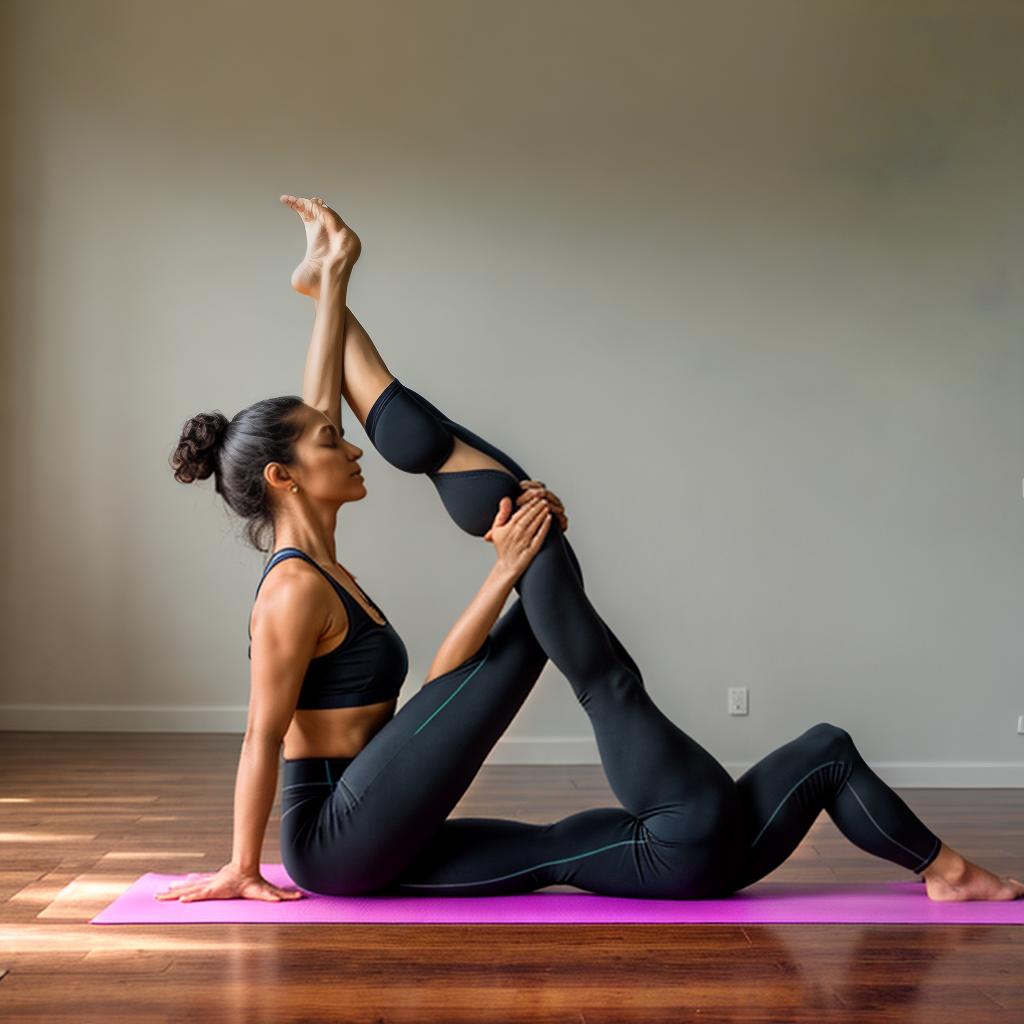In today’s fast-paced world, stress has become an almost constant companion for many. From the demands of work and family to the pressures of modern life, stress can take a toll on our physical and mental well-being. Fortunately, there’s a practice that has been around for thousands of years and has proven effective in reducing stress and improving flexibility – yoga. In this blog post, we will explore the significant role that yoga plays in promoting relaxation and enhancing flexibility.
Understanding Stress and Its Impact
Before we delve into the world of yoga, let’s first understand what stress is and how it affects us. Stress is the body’s natural response to any demand or threat. While a certain amount of stress can be beneficial, chronic stress can lead to a range of health issues, including anxiety, depression, high blood pressure, and a weakened immune system.
Yoga: A Holistic Approach to Stress Reduction
Yoga is an ancient practice that originated in India and has gained immense popularity worldwide. It is not just a physical exercise but a holistic approach to well-being that combines physical postures, breath control, meditation, and ethical principles. Here’s how yoga can help reduce stress:
1. Stress Reduction through Relaxation Techniques
One of the primary ways yoga reduces stress is through relaxation techniques. Yoga encourages deep and mindful breathing, which activates the body’s relaxation response. Techniques like deep belly breathing and meditation promote a state of calmness and help reduce the production of stress hormones.
2. Physical Activity and Stress Relief
The physical postures (asanas) in yoga help release tension in the body. Practicing yoga regularly can alleviate muscle stiffness and soreness, which are often associated with stress. It also increases the production of endorphins, the body’s natural feel-good chemicals, which can improve mood and reduce stress.
3. Mind-Body Connection
Yoga emphasizes the connection between the mind and body. By focusing on the present moment and being aware of physical sensations, yoga practitioners can better manage stress. This mindfulness can lead to greater self-awareness and a sense of control over one’s emotions.
4. Improved Sleep Quality
Many people suffering from stress also experience sleep disturbances. Yoga can help improve sleep quality by relaxing the nervous system and calming the mind. A restful night’s sleep is essential for stress recovery and overall well-being.

Yoga and Improved Flexibility
While stress reduction is one of the significant benefits of yoga, it also offers a host of advantages when it comes to flexibility:
1. Increased Range of Motion
Yoga involves a wide range of stretching exercises that target various muscle groups. Over time, these stretches can significantly increase your flexibility and range of motion. Improved flexibility can reduce the risk of injuries and enhance your overall physical performance.
2. Enhanced Muscle Strength
Yoga postures require you to support your body weight, which can lead to increased muscle strength. Strong muscles provide better support for your joints and contribute to better overall flexibility.
3. Better Posture
Yoga places a strong emphasis on proper alignment and posture. Practicing yoga regularly can help you become more aware of your body’s alignment and improve your posture. This not only enhances your flexibility but also reduces the risk of musculoskeletal issues.
4. Age-Related Flexibility Maintenance
As we age, our flexibility tends to decline. Yoga is an excellent tool for maintaining and even improving flexibility as you get older. It can help prevent the stiffness and reduced range of motion that often comes with aging.
FAQs
Q1: Can anyone do yoga, or is it only for flexible people?
A1: Yoga is suitable for people of all fitness levels and body types. You don’t need to be naturally flexible to start practicing yoga. Regular practice will gradually increase your flexibility.
Q2: How often should I practice yoga to see improvements in stress levels and flexibility?
A2: For stress reduction, even a few minutes of daily practice can be beneficial. For flexibility, aim for at least three sessions per week. Consistency is key to experiencing the full benefits.
Q3: Are there specific yoga styles better suited for stress reduction and flexibility?
A3: Styles like Hatha, Vinyasa, and Yin yoga are particularly effective for reducing stress and improving flexibility. However, the best style for you depends on your individual preferences and goals.
Q4: Can yoga replace other forms of exercise?
A4: While yoga offers many benefits, it may not replace other forms of exercise entirely. Incorporating yoga into your fitness routine can complement other activities like cardio and strength training.
Yoga is a powerful practice that can significantly reduce stress and enhance flexibility. By incorporating yoga into your daily routine, you can experience improved physical and mental well-being. So, unroll your mat, take a deep breath, and embark on a journey to a healthier, more flexible, and stress-free you through the practice of yoga.
